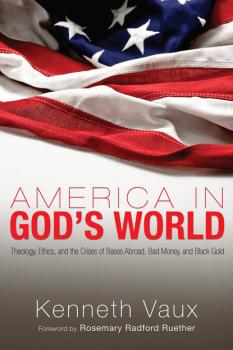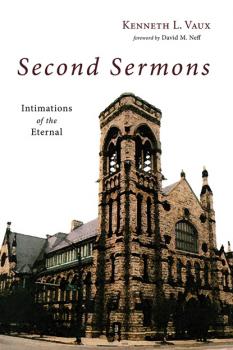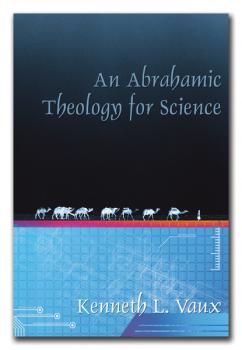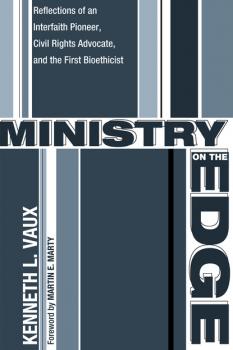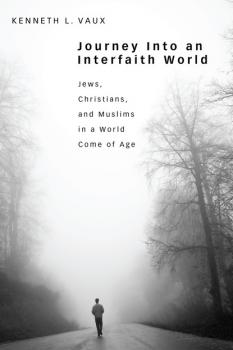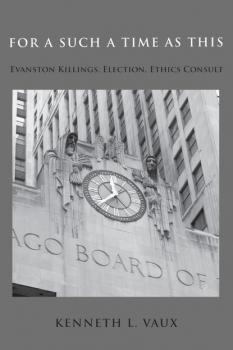ТОП просматриваемых книг сайта:
Kenneth L. Vaux
Список книг автора Kenneth L. VauxАннотация
America in God's World argues that human injustice in social-policy areas such as security, economy, and ecology can be traced to defective theology/ethics abroad in the land. Renewing biblical theology and ethics, and finding new ways to appropriate this wisdom into public policy, can bring renewal to our national life and help heal and reconcile our troubled world.
Аннотация
While serving as Interim Pastor in the 1993-1994 church year, Kenneth Vaux announced a year-long sermon series entitled «Intimations of the Sacred.» Building on the concepts of William Wordsworth that the simple items of nature–leaves, songs, snowflakes, and gestures of kindness–hint to us the mysteries of the divine, we assemble here a selection of these «Second Sermons,» which include themes such as Bach and Mozart, Calvin, Wesley and Ghandi, Healing and Resurrection, Reconciliation and Redemption. Here, one can reenact C. S. Lewis' The Lion, Witch and the Wardrobe, finding a magical world as one enters into the realm within the wardrobe. Lions and Unicorns, Princes, Queens, ships and storms all rest as an in-depth screen behind the door of your schoolhouse or your grandfather's attic. The sermons seek to transpose the reader from the realm of the mundane to the supernal and back again.
Аннотация
Ethics of Wars of Insurgency is my fifth study on «the ethics of war and peace.» It spans a twenty-year period of perplexing war and peace history focusing on the theological and ethical aspects of American foreign policy analysis from Somalia to Rwanda to Bosnia, concluding with present activities involving Syria–and the concurrent events of ending the wars in Iraq and Afghanistan. This study highlights the theological themes of prophecy and biblical teaching and the ethical themes of human rights, violence, and peacemaking. The thesis of Ethics and the Wars of Insurgency is that only theological and ethical analysis can fathom the depths of meaning and appropriate action in these vital areas of policy and strategy in American and world affairs.
Аннотация
Kenneth Vaux advocates an Abrahamic theology as a dynamic and ethical axis for science and technology and argues for its continuing salience for a vital and humane science. He demonstrates a historical correlation between an Abrahamic theological tradition (monotheism and venturism) and the rise of science.
Vaux illustrates these developments in the work of six scientists: Avicenna, Boyle, Schweitzer, and Teilhard, as well as contemporaries Amartya Sen and Leon Kass. In the course of his discussion, Vaux engages the contemporary dialogue between religion and science.
Vaux illustrates these developments in the work of six scientists: Avicenna, Boyle, Schweitzer, and Teilhard, as well as contemporaries Amartya Sen and Leon Kass. In the course of his discussion, Vaux engages the contemporary dialogue between religion and science.
Аннотация
Ministry on the Edge tells the story of Dr. Kenneth Vaux's long-standing career as theologian and minister–the first bio-ethicist, a civil rights advocate, and interfaith pioneer. Through a collection of essays, articles, and sermons, Vaux traces his prophetic assessment of important ethical issues from the perspective of theology and religion. He offers readers a deeper appreciation of the ethical implications of human and civil rights; medical and healthcare issues (such as abortion, stem-cell research, transplantation, death and dying); public policy; science and technology; war and interfaith conflict. By modeling a way of thinking through the questions that matter most, he helps readers find their own theological lens for wrestling with important moral and ethical concerns. Vaux's reflections are universal, exploring theology and ministry «on the edge»–the boundary between Godly and worldly, sacred and secular, evangelical and ethical–what Bonhoeffer called the boundaries of good and evil, truth and falsehood, hope and despair.
Аннотация
In this comprehensive volume, Dr. Kenneth L. Vaux explores the shared theological ground of Judaism, Christianity, and Islam-the common God, the common good, the common word, and the common work. Based on the premise that the three Abrahamic faiths are given by God for some purpose in God's universal history, Journey Into An Interfaith World traces the ways in which these faith movements flow together from and into each other in synergistic ways. At the same time, the book reveals how each fraternal faith has missed the mark in disassociating from its sibling traditions. Vaux's «journey» examines the spiritual genealogy shared by the three cognate faiths–from whom we come–as well as the mutual spiritual ontology–to whom we belong. «All three traditions echo the same refrain: 'Do we not belong to One God?'»
Аннотация
This diary is a fine-grained, often daily, theological reflection on the author's final ponderings on his ordeal with a serious illness, a concluding sabbatical, a last year of teaching, a culminating lecture, presiding at Eucharist, and summarial notes about «what God is doing in the world.» Amid all these meanderings it holds the lectionary of the biblical and liturgical calendar in one hand and the newspaper in the other (K. Barth). Events during this time span were transformative and world shaking–and found resonance in my personal drama. One finds art and music, faith and politics. The reader will easily slip one's own story into this narrative. My purpose is precisely this–to offer symbiotic and symbolic story on life and its meaning.
Аннотация
This third volume of Ken Vaux's memoirs covers the calendar year of 2012 which focused on (1) teaching in the Evanston church as this body struggled to be both evangelical in theology and oriented to social justice in the community. We searched together for having what it takes to be a «University Church»–preaching and teaching a credible and relevant message and living out a vital witness; seeking honest responses to issues in church and state such as homosexuality, embodying concern for the poor and lively ministry in the neighborhoods of the parish. (2) That community was confronted with belief crisis and ethical challenge during the year with eight gun-killings of young people. The churches now had to move beyond the prevalent complacency, confront the racisim and disregard for the poor disband the apartheid of the village that existed even in black and white Ministeria and get real with what an interfaith community had to do to leaven and heal its own backyard. (3) For Such a Time as This also deals with global and national political issues such as an unwinding war in Iraq and Afghanistan and a new one arising in Syria–biblical theology being put to the test–and the provocative election of 2012 as the theological imagination was stirred by candidates Obama and Romney.

